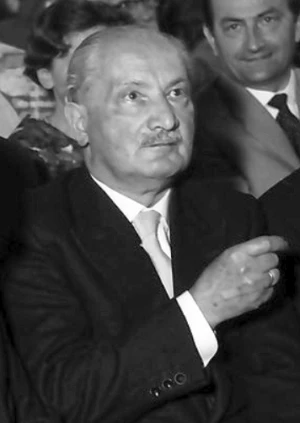Biography
(No Information)
Filmography
all 6
Movies 6
self 3
Writer 2
Himself (voice)

Symphony Of The Invisible (2020)
Movie
Self - Philosopher (archive footage)

Vita Activa: The Spirit of Hannah Arendt (2015)
Movie
ArchiveSound

Hölderlin-Comics (1994)
Movie
Writer

The Night (1985)
Movie
Information
Known ForActing
GenderMale
Birthday1889-09-26
Deathday1976-05-26 (86 years old)
Birth PlaceMesskirch, Germany
ChildrenHermann Heidegger
SiblingsFritz Heidegger
CitizenshipsWest Germany, Weimar Republic, Nazi Germany
This article uses material from Wikipedia.
Last updated:
Image credit: Willy Pragher
, CC BY-SA 3.0, via Wikimedia Commons
 Martin Heidegger
Martin Heidegger- Filmography
- Information
